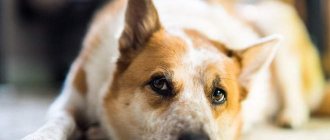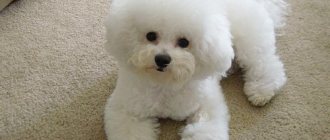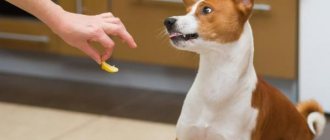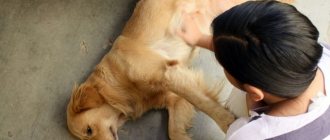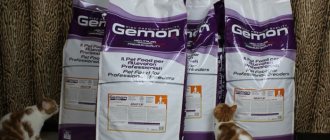The main property with which people identify a dog is its phenomenal sense of smell. The hypersensitive receptors in these pets allow them to detect odors about 400 times better than humans.
The olfactory function in dogs is provided by more than 200 million cellular structures responsible for capturing and recognizing various odors. This is due to the dog’s subtle sense of the most incredible odors, which sometimes a person does not feel at all.
Some odors are so unpleasant for dogs that they cause aggression and can provoke severe emotional irritation in the animal.
Every owner should know what odors are unpleasant for dogs, so that in the future they can try to minimize their number in the room where the pet is located, protecting its nervous system and sense of smell.
Hot or cayenne pepper
The smell of hot pepper repels dogs, and in high concentrations it can even burn out the olfactory receptors. Hot pepper powder has long been used by thieves and scammers to throw sniffer dogs off their scent.
Fortunately, over time, the sense of smell is restored. In addition, many dogs are able to use the so-called “upper” sense, when the dog raises its nose and draws in air currents. Therefore, experienced tracking dogs cannot be fooled by this.
Smells that repel dogs
A dog's nose is extremely sensitive to odors.
The owner must remember what smell dogs cannot stand. This will help him protect his pet from health problems and, if necessary, influence his upbringing. Nasty odors cause severe stress in the animal.
Criteria for unpleasant odor
A strong stench not only makes pets feel uncomfortable, but can also dull their sense of smell. For a dog to lose his sense of smell is almost the same as going blind. A dog may or may not like many smells depending on its individual characteristics and preferences. There are several criteria by which you can guess that it will be unpleasant for a dog to smell such an aroma:
- a pungent odor that hits the nose;
- chemical aroma;
- citrus;
- gases released from various volatile compounds;
- evaporation of bleach, vinegar, alcohol;
- tobacco smoke;
- gases that irritate the mucous membrane (for example, pepper spray, etc.).
Note! A dog living in a village or rural area has a more subtle and sensitive sense of smell than a city dog.
There are too many chemical odors in the city, due to which the dogs' sense of smell is impaired. Asphalt, from which gas evaporates, is especially strongly affected. Its smell is almost unnoticeable, but the dogs’ sense of smell is noticeably reduced.
Tobacco and alcohol smell unpleasant to dogs
Natural scents
There are many natural odors that are unpleasant to dogs:
- pepper - in any form;
- citrus fruits - orange, tangerine, lemon, lime, grapefruit;
- garlic;
- lavender;
- hellebore is a rare poisonous plant;
- sagebrush.
These natural, natural odors cause discomfort and make the dog nervous.
Note! Dogs get nervous when they smell a dog (another animal) or a cat.
A dog may begin to hate a certain smell if it associates it with unpleasant memories. For example, if she was offended by a person who smelled of cologne, the dog may become afraid or react aggressively to similar odors. The same behavior will be observed if the dog was hit by a horse.
Artificial fragrances and household chemicals
Dogs hate many smells from household chemicals and other artificial substances. Unlike natural scents, chemical scents can be harmful to an animal's health, so such substances should be kept away from dogs.
Smells disgusting:
- varnishes and paints;
- tobacco (shag and cigarette smoke);
- bleach;
- vinegar;
- acetic acid;
- some deodorants, aerosols and sprays;
- nail polish;
- ammonia;
- alcohol;
- metal;
- alcohol;
- solvents;
- windscreen wipers.
If the enclosure in which the dog lives smells of metal, then the pet will react inadequately to what is happening and be constantly nervous. The enclosure needs to be repaired. A metal roof is especially harmful. When building an enclosure, you need to use a minimum of metal parts.
Dogs don't like citrus scents
Fragrances that are dangerous to the sense of smell
Another category is fragrances that are dangerous to the sense of smell. They cause persistent disgust in the pet, and can also cause an allergy attack, poisoning of the animal, irritation and damage to the respiratory tract.
The smell of chlorine, chlorine-containing bleaches and cleaning products, and household chemicals have a detrimental effect on dogs’ olfactory abilities. When cleaning the house using such disinfectants, it is better to take your pet for a walk until the room is ventilated.
This rule must also be observed in relation to solvents, thinners, acetone, and paints and varnishes. Owners of four-legged friends should not forget to take their pet out of the room during the next manicure session, as well as when spraying hair styling products in the air. After all, permanent coating remover and nail polishes are no less toxic.
A popular and effective remedy in the fight against moths, naphthalene emits an unpleasant aroma that repels not only insects, but also dogs.
It is known that four-legged friends are also “not indifferent” to the smell of metal. An animal enclosure should be built using as little metal structures as possible; an iron roof is especially undesirable.
It is obvious that the listed categories of substances should under no circumstances be used by the owner in the process of educating and correcting unwanted behavior.
Changing the dog's diet: what foods and medications affect the level of acidity in the urine?
On the Internet, you can see advice to change the diet of dogs, which supposedly should affect the effect of the dog’s urine on grass and plants. To begin with, we immediately discard commercially available drugs containing methionine or ascorbic acid, which affect the level of acidity in the urine, since, as we have already found out, this has nothing to do with “scorched grass.” Moreover, they can cause harm to the health of your pet, for example, stones can form in the kidneys. Special medications can dilute urine, but this can be achieved in safer ways. For example, you should feed your pet canned food more often, and dilute dry food in water. Salts, garlic and tomato juice, when added to food, increase the volume of water consumed, which leads to dilution of urine, but these products should not be used without first consulting a veterinarian, Colorado State University Extension scientists recommend.
Scientists at Purdue University are extremely skeptical about dietary modifications using drugs as a way to prevent dogs from damaging your lawn: “Most of these products simply force pets to drink more water, thereby diluting the nitrogen content in the urine. An additional side effect is that the animal will need to urinate more often, increasing the likelihood of "accidents." In addition, the use of these products is potentially dangerous,” states the article Animal Urine Damage in Turf.
As another scientist, Ali Harivandi, Environmental Horticultural Advisor, UC Cooperative Extension, Alameda County, points out, claims that dietary changes help solve the problem are not based on anything. There is no scientific research to support the effectiveness of dietary changes in reducing lawn damage, he said. Ali Harivandi considers the most effective way to immediately wash away urine with large volumes of water. This way, the water will wash away nitrogen and salts from the leaves. Moreover, in this case, the time factor plays a key role - the sooner you water the place where the dog urinated, the better. However, from the point of view of convenience, this method does not seem to be the most attractive. Can you imagine yourself guarding your pet with a hose or a bowl of water in your hands?
If you spend your precious time, it would be better to train the dog, weaning it from leaving waste products where it is not needed. Find a special place in your garden for this purpose and line it with fine soil. Next, over the course of several weeks, collect your pet’s urine and feces and transfer them there. Take your dog out into the garden on a leash and leave it there. When your dog defecates in this area, give him a treat as a reward. You may need to repeat these exercises for a month or even longer to achieve results, but the price of these efforts is your peace of mind and a beautiful garden.
Veterinarian Stacey Schat (Oregon State University Master Gardener in Columbia County) recommends installing low fences along the “no-go zone,” which will serve more as a psychological barrier. Even low bushes can perform this function. Also, plant your flower beds densely with flowers to make them look less attractive to your dog. Lay out a path along which it will be convenient for your pet to run and frolic, he will appreciate it. But Stacey Schat is convinced that all these measures will be useless if the owner does not spend time training the dog, and this is important to learn: “If the dog remembers that the sofa does not have a “visit limit,” then it will think the same about your garden. A little training will go a long way; spend more time with your pet,” she advises.
If your dog is not trainable, do not despair - perhaps you did not take into account some of the dog’s personal characteristics. Christopher Enroth, Extension Educator, Horticulture Henderson/ Knox/ McDonough/ Warren Unit, shared his experience involving two dogs. He set up a special place in the garden, lined with wood mulch, and began training his dogs. But Christopher achieved results with only one of them, and the second refused to be trained. “It's something about old dogs and new tricks. Dog owners will understand,” he joked. But during his experiments, Christopher discovered that the second dog preferred to defecate in a pile of fallen leaves - now this is its permanent place for this purpose.
It is useful to regularly walk your dog in parks and other spacious places, which will reduce damage to your garden and, at the same time, bring pleasure to both the owner and his pet.
It is useful to regularly walk your dog in parks and other spacious places, which will reduce damage to your garden and, at the same time, bring pleasure to both the owner and his pet.
Fences from wild dogs
We have already mentioned above low fences used as a psychological barrier. This method works for your pet, but if you want to get rid of the unwanted presence of neighbor or wild dogs, then in this case you need to install a large, full-fledged fence.
Jeffrey S. Green, Assistant Regional Director at USDA-APHIS-Wildlife Services, Colorado, and Philip S. Gipson Unit Leader Kansas Cooperative Fish and Wildlife Research Unit Kansas State University Manhattan recommend installing a chain-link fence with barbed wire along the base to keep out wild dogs so that a wild dog does not try to dig a passage under the fence. The height of the fence must be at least 6 feet, otherwise the animal will try to jump over it. To increase the effect, run an electrically charged wire along the bottom and top of the fence, then the dog will certainly not attempt to dig under the fence or jump over it.
All-electric fences have also proven to be practical. It is advisable that they have 12 alternating wires, in which case the fence is an effective deterrent structure against dogs. But electric fences have a number of disadvantages. First, you need to regularly check whether the wires are sufficiently charged. Secondly, mice and bears can damage such structures. And thirdly, such fences are difficult to maintain in regions where snowstorms occur.
However, Jeffrey S. Green and Philip S. Gipson consider fencing to be the best investment when it comes to keeping out wild dogs. Another option for controlling wild dogs is to install cages with bait. However, by resorting to this method, you risk being bitten by a wild dog and contracting rabies. In addition, puppies are more likely to be crated than adult dogs. If you are afraid of being attacked by a wild dog outside your home, wear special audio or visual dog repellent devices.
How to use "aromatherapy"
Unpleasant odors have to be used to discourage a pet from running into someone else's territory or relieving itself in the wrong place. It will be useful for many to know what smells dogs don’t like in order to scare away uninvited guests from their summer cottage or flower bed.
How to stop a dog from littering the house
Some dogs get used to relieving themselves at home, peeing on furniture and marking territory in the apartment. We need to teach them to endure until they go outside. But first you need to find out the reason for this behavior:
- Age - a puppy under 4 months old cannot tolerate. In old age, urinary disorders are also common.
- Urinary incontinence and other diseases - worms, cystitis, prostatitis, kidney disease, weakening of the sphincter, injuries and damage to the spinal cord, etc.
- Incorrect upbringing - the puppy was not accustomed to walking;
- Violation of the walking and feeding schedule - due to a long break between walks, the dog may not be able to tolerate it.
- Stress, anxiety.
- Genetic disorders - unscrupulous breeders keep puppies in inappropriate conditions, then they learn to walk under themselves and then sleep peacefully in their feces. This habit cannot be corrected by education, but can be inherited.
- Temporary problems during estrus or after sterilization.
It is necessary to first eliminate the cause of the bad behavior, and then retrain the pet.
Pepper is another nasty scent for dogs.
To wean your pet from relieving itself at home, you should follow certain rules:
- You should not poke your pet's nose into a puddle or pile. It is also forbidden to punish or shout.
- Immediately after your pet has pooped on the floor, you need to go outside with him and walk there a little, pointing him to the bushes.
- Small dogs, such as Dachshunds or Pekingese, can be litter box trained. However, they also need walks.
- When the dog goes to the toilet for the first time on the street, you need to praise him and treat him with a treat.
- Walk your pet strictly at a certain time, so that no more than 6 hours pass between walks.
- Those places in which the pet is accustomed to crap in the house must be treated with products that have an unpleasant odor. You can treat it with alcohol or vinegar, anoint it with garlic, and place fresh orange peels there.
Note! Do not spread pepper as it damages the dog's mucous membrane.
Using the same methods, you can wean your pet from chewing furniture or relieving itself in the entrance. But it is important not to overdo it, otherwise the apartment will stink of vinegar or other substances.
Aromatherapy can occasionally be used for education
How to wean a dog from relieving itself on flower beds, lawns, and garden beds
On walks or at the dacha, troubles often occur when a dog runs into flower beds, beds and lawns in the city or on a garden plot. Many owners try to find out what to sprinkle with so that dogs don’t spoil or spoil the plants.
You can use a “safety fence” in your garden plot. You need to plant lavender or garlic around the flowerbed or bed. Dogs are afraid of the smells of these plants. But you can’t plant hellebores or peppers, because they contain potent toxins. It is advisable to build a fence around the lawn. Every time your pet runs in there, you must say in a stern voice: “You can’t!”
Natural repellers (vinegar, orange, lard with garlic, alcohol) can be used to treat a place where dogs are prohibited from entering, for example, a bed on which a cat will lie. It is also advisable to treat the fence and front door so that pets do not dig under the neighbors and break the gate. An ideally trained dog will only run around the yard or near tall trees.
Lemon, vinegar, garlic, lavender can be used to repel
No. 6. Mothballs
These tiny white beads have a very distinct smell that you will immediately recognize if you have used them at some point in your life. They are designed to prevent moths from eating your clothes.
Mothballs act as a pesticide and deodorizer to control mold odors. Due to their chemical composition, moth balls are very dangerous for both dogs and humans.
If you plan to use mothballs to keep your dog out of the room, make sure the mothballs are securely attached. If your dog eats even one mothball, he will be at immediate risk of death.
To prevent problems from occurring, you can store mothballs out of reach or use a specially designed holder. As long as the strong smell of mothballs permeates the room, it will do its job.
No. 10. Cosmetic products
Nail polish, hairspray, and other cosmetic products contain chemicals. Think about how familiar these foods smell.
Most adults can easily identify these foods without even looking at them, especially if they are familiar with them. If the smell is strong for you, it will be almost unbearable for your puppy.
Never use cosmetics as a deterrent. If you plan to use them on yourself, keep your dog in a well-ventilated area that will not be exposed to the fumes.
Additionally, you can buy natural beauty products or those that do not contain harsh chemicals.
Other dog repellents
Unfortunately, sometimes you have to use a dog repellent. These products have an unpleasant odor for animals. Feeling a nasty aroma, animals stop going to someone else’s garden and running onto the lawns. It is important to choose the right non-toxic repeller.
Types of repellers
People who are trying to find something to scare dogs away know that there are several types of means:
- aerosol - sprays with an unpleasant odor;
- electric - stun guns;
- ultrasonic - emit ultrasound that is unpleasant for dogs.
A repeller can be used if a pet shows an unhealthy interest in something forbidden, for example, picking up something from the ground. Aromatic products are sometimes carried by people jogging or cycling.
Criterias of choice
It is recommended to use aerosol or ultrasonic repellers, as these are the safest means. Pepper spray should not be used on dogs.
Note! It is best to buy the drug “Antidog” and similar products. It won't cost much, but it will be effective.
No. 7. Alcohol
Standard rubbing alcohol has an unpleasant odor to dogs. You can spray alcohol onto cotton balls and place them on the area where your dog is acting up.
The effectiveness of alcohol will depend entirely on its concentration. The higher the alcohol percentage, the stronger the smell.
As with any chemical, it is important to keep your dog safe. Never spray it on your dog. Many veterinarians do not even recommend rubbing alcohol on a dog's skin after an injury, so it is important to avoid any contact with the dog.
In addition, alcohol is highly flammable. Keep this in mind when placing alcohol-soaked cotton balls around your home.
Beaphar Stop it Dog spray for repelling dogs
Get out of my garden!
There are special products that have a scent that repels dogs. In English-speaking countries, this line is presented under the telling title “Get Out of My Garden,” but in Russia it is known as “Antigadin.” At the veterinary store you can buy powder, gel and spray, which will temporarily discourage the dog from poking into the area they have treated. The packaging indicates the period during which the product is valid, after which it must be renewed. The advantage is that Antigadin is resistant to water, and you do not have to reapply the drug every time after rain.
When, how and what to wash your dog so that it doesn’t smell like dog
- The first and perhaps most important method: wash the dog. You need to purchase a special shampoo . Some dog breeders also buy coat conditioner. But it all depends on the pet’s coat. Your veterinarian will tell you exactly how to wash your dog so that it doesn’t smell like dog. The product should not only mask the odor, but completely eliminate it. First of all, you need to understand that the shampoo must be designed specifically for dogs and have the appropriate acidity level (ph) . Your pet needs to be bathed at least once a month.
- Does your pet often smell like dog? What can I do to avoid this? Carry out hygiene measures. For example, clean your ears . Do you know that dirty ears are a common cause of bad odor? By the way, unkempt ears can lead to various diseases, inflammation of the auricle and canal.
- It is not necessary to wash your dog once every six months and assume that it will not smell like a dog. Additionally, you need to comb the coat every day. Dirt and debris found on the wool will be removed, and, accordingly, there will be no odor.
- Brushing your pet's teeth will help prevent bad odors. The ideal option would be if cleaning was done every day. But this hygiene procedure should definitely be carried out several times a week.
- It is not recommended to spray your pet with perfumes , deodorizing and scented products. This will only mask the odor for a short time and will not eliminate it permanently.
If you didn’t smell a specific aroma from your pet before, but now this smell has appeared, then you need to reconsider diet . Some additives found in cheap food can cause digestive problems. If the food is suspicious, it needs to be replaced with an expensive and high-quality one. It is advisable, at a minimum, to purchase granules that at least will not harm the body. Ideally, it is better to buy premium food.
There is no clear answer to the question of what to do to prevent your beloved dog from stinking. All activities must be carried out as a complex. Otherwise, it will be difficult to achieve success in this difficult task.
A few words about education
Before using repellents, the owner must be aware that this method of correcting the pet’s behavior does not lead to the consolidation of the desired type of behavior. If you are trying to stop your dog from marking corners or defecating in the house using strong-smelling substances, then most likely you will not succeed.
No repellents will help in raising a dog if the owner himself does not use it.
Remember that sudden impact on the animal's olfactory system will cause stress, especially if such impact becomes a habit. Stress, in turn, will lead to other behavioral deviations, which will also have to be dealt with somehow.
The most important means of influencing a pet is the authority of the owner. It is on this that all further educational measures are based. As you can see, spraying odorous compounds does not give a predictable reaction from the dog and does not allow you to achieve a clear result. Therefore, the repellent can be used as an aid, but nothing more. It is effective as a method of dealing with unfamiliar animals, but is useless as an educational measure.
Education and training of a pet are the key to its good behavior and devotion to its owner.


